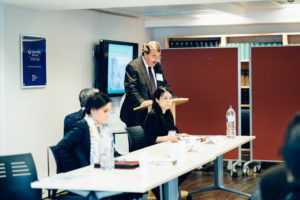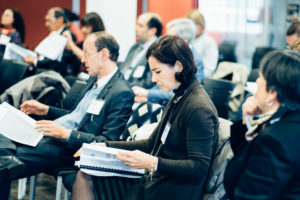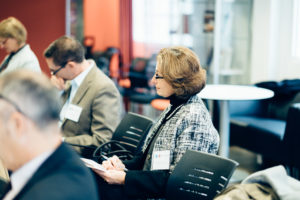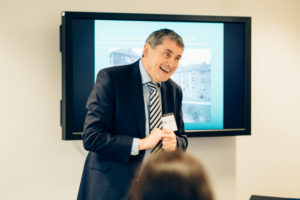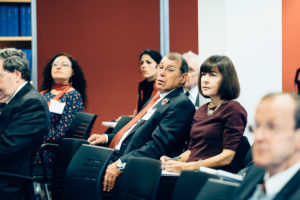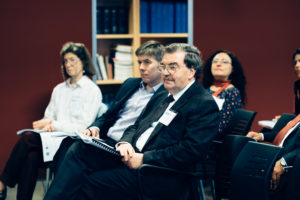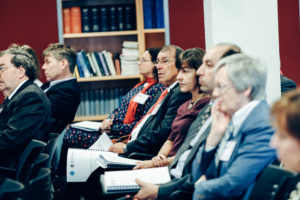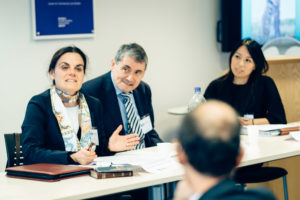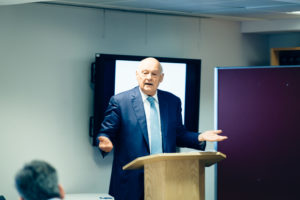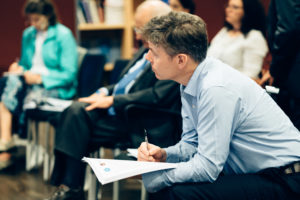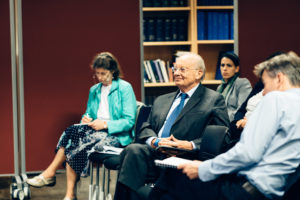The Home: A Complex Field | London
A deeper understanding of what a home is, and why everybody looks for a home, can help us to identify the right categories to understand relationships and their relevance in society.
Human beings have been creating home environments for thousands of years. It is part of their culture and of their story: both its source and memory. A deeper understanding of what a home is, and why everybody looks for a home, can help us to identify the right categories to understand relationships and their relevance in society. We thus seek to explore the epistemological and ontological status of the home in structuring human behaviour and social capacities. This understanding will help us overcome reductionist accounts of the home and of the work that is performed in that environment (i.e. merely functional). New categories should consequently be identified as they have often been in the fields of sociology, biology, etc.
PANELS
-
The Impact of adverse family environments on the cognitive and social development of children. PUBLIC HEALTH.
Presenter: Prof. Sir Harry Burns, University of Strathclyde.
Respondent: Dr. Celeste Torio, Catholic University of America.
-
What is a home? An Ontological Inquiry. PHILOSOPHY OF SCIENCE.
Presenter: Prof. Alfredo Marcos, University of Valladolid.
Respondent: Prof. Marta Bertolaso, Campus Bio-Medico University of Rome.
-
Pension Provision, Care and Dignity in Old Age. Legal Frameworks for Protecting the Work of the Home. LAW.
Presenter: Prof. Rosa Maria Lastra, Queen Mary University of London.
Respondent: Prof. E. Philip Davis, National Institute of Economic and Social Research.
-
Intergenerational Transmission of Marriage and Relationship Legacy. SOCIOLOGY.
Presenter: Prof. Mark Regnerus, University of Texas at Austin.
Respondent: Dr. David Walker, University of Birmingham.
-
Self & Others. The Relationship between the Individual, Family and Culture. PHILOSOPHY (Ethics/ Anthropology).
Presenter: Prof. Maria do Ceu Patrao Neves, University of the Azores.
Respondent: Ms. Remei Agulles, Universitat Internacional de Catalunya.
-
Spatial Relationality and Domesticity. Human perceptions and behaviours in terms of the relationship between the space(s) of the home and domestic work. HUMAN GEOGRAPHY.
Presenter: Prof. Alban d’Entremont, University of Navarra.
Respondent: Dr. Nancy Lozano Gracia, World Bank.
-
The Home and Economic Paradigms. ECONOMICS.
Presenter: Prof. Stefano Zamagni, University of Bologna.
Respondent: Prof. Maria Sophia Aguirre, Catholic University of America.
This Experts Meeting was sponsored by STI and organized by The Home Renaissance Foundation
- Experts Meeting London 1
- Experts Meeting London 2
- Experts Meeting London 3
- Experts Meeting London 4
- Experts Meeting London 5
- Experts Meeting London 6
- Experts Meeting London 7
- Experts Meeting London 8
- Experts Meeting London 9
- Experts Meeting London 10
- Experts Meeting London 11
- Experts Meeting London 12

